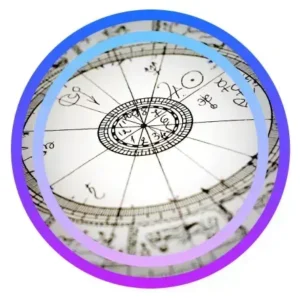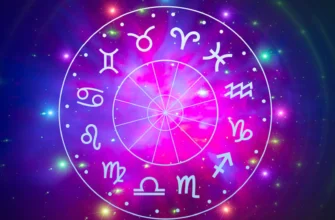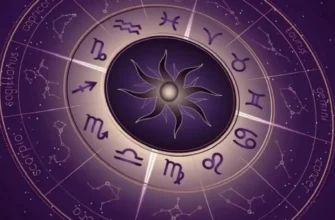Jupiter trine Jupiter in synastry is one of the most uplifting and harmonious aspects two people can share. In synastry chart meaning, Jupiter symbolizes optimism, generosity, wisdom, and faith—so when both partners’ Jupiters form a trine, their worldview aligns naturally. There’s an effortless sense of possibility, trust, and emotional expansion. In relationship synastry, this aspect strengthens shared goals, whether they involve travel, education, cultural experiences, or personal growth. Partners encourage each other, believe in each other’s potential, and recover quickly from conflict because they understand the bigger picture.
In love compatibility astrology, Jupiter trine Jupiter often indicates a relationship where humor, forgiveness, and enthusiasm flourish. Both individuals feel emotionally safe exploring new ideas, taking positive risks, and building a future together. This aspect can elevate the entire relationship—creating luck, harmony, and a mutual belief that life becomes better when they are together. From a synastry chart compatibility perspective, it’s a gift: the kind of cosmic support that makes partnerships thrive.
Jupiter trine Jupiter in synastry ultimately represents pleasant bonus rather than essential foundation – an aspect that makes everything easier, smoother, and more enjoyable without being strictly necessary for relationship success. The aspect creates social-level harmony, aligned values, compatible approaches to opportunity and growth, and absence of constant friction around money, resources, and philosophical priorities that exhaust relationships lacking this natural coordination.
This harmonious aspect in astrology interpretation creates what might be called “synchronized fortune,” where both people share similar worldviews, compatible approaches to growth and opportunity, and mutual understanding about what constitutes good life, proper behavior, and worthwhile pursuits. Understanding this meaning in astrology reveals why certain relationships feel remarkably easy and harmonious, why some partnerships achieve business success despite personal incompatibility, and how astrological compatibility operates through shared social values and philosophical alignment creating cooperation so smooth that participants barely notice how well they work together because everything simply flows naturally without friction or significant disagreement.
Jupiter represents growth, expansion, optimism, social resources, philosophical values, good fortune, and the principle of increase and abundance in the Birth Chart. When two people’s Jupiters harmonize through the 120-degree trine aspect, they share compatible philosophies about life’s meaning and purpose, similar approaches to opportunity and growth, aligned values about what matters socially and morally, and complementary resources that multiply rather than compete. Both people naturally support each other’s expansion, celebrate each other’s successes without jealousy, and find their combined social resources create more opportunities than either could access independently.
The trine, as astrology’s most favorable aspect for smooth collaboration, creates energy flow so easy and natural that its benefits might be taken for granted or underestimated. Jupiter trine Jupiter doesn’t create intensity, passion, or dramatic transformation – it simply makes everything easier, more pleasant, and more likely to succeed without requiring constant effort, management, or navigation of conflicts and disagreements that characterize more challenging aspects.
The Harmony Factor: Rarely Quarreling, Smoothly Cooperating
Jupiter trine Jupiter’s most immediately noticeable quality involves remarkable absence of quarreling, conflict, or significant disagreement between the two people. This doesn’t mean they agree on everything or share identical personalities – they might differ substantially in many ways, particularly regarding inner planets governing personal preferences, emotional needs, or communication styles. However, at social level – regarding values, opportunities, resources, philosophical frameworks, and approaches to growth and success – they naturally align without requiring negotiation, compromise, or ongoing management of different priorities.
This harmony manifests across all relationship types: parents and children with Jupiter trine Jupiter experience less generational conflict, fewer value clashes, and more natural mutual understanding about life goals and proper behavior than families lacking this aspect. Spouses with Jupiter trine Jupiter rarely fight about money, social priorities, or philosophical differences – their “mini-society” of marriage operates smoothly because both partners naturally want similar things, value similar outcomes, and approach opportunities and challenges through compatible frameworks requiring minimal discussion or compromise.
Colleagues and business partners with Jupiter trine Jupiter work together more smoothly than separately – their collaboration proves greater than sum of individual contributions because their combined social resources, complementary networks, and aligned values create synergy. They don’t waste energy on internal conflicts about priorities, resource allocation, or strategic direction because they naturally agree on these fundamental questions without requiring endless meetings or negotiations.
The contrast with Jupiter square Jupiter proves instructive: the square creates indulgent disharmony where both people enable each other’s excesses while simultaneously creating friction through different approaches to expansion and opportunity. Square partners might both love travel yet argue constantly during trips about where to go, how much to spend, or what constitutes good time. Trine partners also enjoy traveling together but experience significantly fewer arguments and unpleasant incidents because their natural compatibility around adventure, spending, and pleasure-seeking creates smooth coordination requiring minimal discussion.
When examining horoscope compatibility for general harmony and ease, Jupiter trine Jupiter indicates relationship that simply feels good – comfortable, supportive, optimistic, and free from constant low-level friction that characterizes relationships where Jupiter energies clash or fail to align naturally.
Business Success Despite Personal Incompatibility
One of Jupiter trine Jupiter’s most fascinating manifestations involves business partnerships that achieve remarkable success despite participants having minimal personal relationship, numerous disharmonious inner planet aspects, or even active dislike for each other outside work context. The documented example involves producer and television host whose Jupiter trine Jupiter created conditions for hugely successful show despite “many disharmonious aspects in their inner planetary aspects and don’t have much of a personal relationship.”
This illustrates crucial distinction between social-level compatibility (governed by Jupiter) and personal-level compatibility (governed by Sun, Moon, Venus, Mars, Mercury). These two individuals apparently didn’t particularly like each other as people – their inner planets clashed, creating personality conflicts, communication difficulties, or simply lack of personal chemistry that would prevent friendship under normal circumstances. Yet their aligned Jupiters created “mini-society” within their professional collaboration where social resources, industry connections, audience understanding, and business values harmonized perfectly despite personal incompatibility.
Their business partnership flourished specifically because business success depends primarily on social-level factors Jupiter governs: understanding markets and audiences, accessing appropriate resources and connections, maintaining aligned strategic vision, and coordinating efforts toward shared goals requiring philosophical agreement about what constitutes success and how to achieve it. Personal friendship, emotional intimacy, or enjoying each other’s company prove largely irrelevant to business success – nice if present but not essential when Jupiter-level compatibility creates smooth professional collaboration.
This pattern appears frequently in successful business partnerships, professional collaborations, or creative teams where participants maintain cordial working relationship producing excellent results yet rarely socialize outside work, don’t consider each other friends, and might even actively avoid personal contact beyond professional requirements. The Jupiter trine ensures professional collaboration succeeds; absent inner planet harmony ensures personal relationship remains minimal or nonexistent.
In compatibility zodiac analysis for business ventures, Jupiter trine Jupiter indicates excellent foundation for professional success regardless of whether participants like each other personally, share emotional connection, or desire friendship beyond working relationship. The aspect suggests they can build successful “mini-society” within their professional collaboration even if they’d never choose each other as friends or social companions.
Traditional Marriage Compatibility and Modern Relevance
Jupiter trine Jupiter historically played central role in traditional marriage compatibility analysis – considered crucial factor determining whether couple could maintain stable, reasonably harmonious marriage providing adequate material comfort even if lacking romantic passion or deep emotional intimacy. The aspect’s accessibility through simple calculation made it practical screening tool: Jupiter spends approximately one year in each zodiac sign, making people born roughly four years apart (four signs apart) naturally possess Jupiter trine Jupiter unless one person’s Jupiter occupies very early degrees while the other’s occupies very late degrees of their respective signs.
This accessibility meant traditional matchmakers could easily identify potential partners with Jupiter trine Jupiter without requiring detailed chart calculations or professional astrologers – simply knowing someone’s birth year provided reasonable approximation of Jupiter position, allowing quick assessment of whether potential match would create Jupiter harmony supporting stable marriage and adequate prosperity.
Traditional marriage standards emphasized compatibility producing stable households, adequate resources, and minimal conflict – not passionate romance, deep emotional connection, or personal fulfillment that modern relationships prioritize. Jupiter trine Jupiter meets these traditional standards excellently: couples with this aspect can maintain harmonious household, rarely quarrel about money or social priorities, coordinate effectively on child-rearing and family management, and generally avoid poverty through combined resources and opportunities even if they never become wealthy.
The aspect “doesn’t guarantee great wealth, but at least reduces the likelihood of poverty” – perfectly capturing traditional marriage’s primary function as economic partnership and social unit rather than romantic fulfillment vehicle. Avoiding poverty and maintaining social respectability represented successful marriage by traditional standards; Jupiter trine Jupiter delivered these outcomes reliably enough to serve as practical compatibility threshold.
However, modern relationship expectations have evolved dramatically: people now prioritize emotional intimacy, sexual satisfaction, personal growth, and genuine friendship within marriage rather than accepting merely functional partnership providing economic stability and social harmony without deeper connection. Modern divorce rates reflect this shift – people leave marriages that would have been considered perfectly adequate by traditional standards because contemporary expectations require more than Jupiter trine Jupiter alone provides.
This makes Jupiter trine Jupiter less important by modern compatibility standards: it remains beneficial, creating ease and harmony that enhances any relationship. However, it’s no longer sufficient for satisfying modern marriage lacking emotional depth (Moon connections), romantic passion (Venus-Mars aspects), sexual chemistry (Mars-Pluto dynamics), or deep psychological intimacy (Moon-Pluto or Venus-Pluto aspects) that contemporary relationships require for participants to feel fulfilled rather than merely comfortable.
When using a Free Synastry Chart to assess modern marriage potential, Jupiter trine Jupiter indicates pleasant bonus enhancing relationship quality but shouldn’t be prioritized over aspects addressing emotional bonding, sexual compatibility, communication ease, and deep intimacy that determine whether contemporary marriage satisfies both partners’ needs for connection beyond mere harmony and economic cooperation.
The Mini-Society Concept: Shared Social Benefits
Jupiter trine Jupiter creates what might be called “mini-society” within the relationship – a small social unit possessing its own resources, values, and opportunities that benefits both participants beyond what either could access independently. This mini-society functions smoothly because both people share compatible understandings of social reality, aligned values about proper behavior and worthwhile pursuits, and complementary resources that multiply through combination rather than competing or canceling each other.
In parent-child relationships, the mini-society involves family unit functioning harmoniously with adequate resources, minimal generational conflict, and natural transmission of values from parents to children who don’t rebel against or reject parental worldview because it naturally aligns with their own emerging Jupiter-governed values and social understanding.
In marriage, the mini-society involves household operating as effective economic and social unit – both spouses contribute compatible resources, coordinate easily on financial decisions, present unified front to external world, and generally experience their combined social position as superior to what either would achieve independently. The marriage serves its traditional function as partnership enhancing both people’s social standing and resource access.
In business partnerships, the mini-society involves collaboration creating more value, accessing broader markets, or achieving greater success than either partner could produce alone. The partnership multiplies rather than merely adds individual contributions because aligned Jupiters create synergy where combined resources and complementary networks open opportunities unavailable to either person working independently.
The mini-society concept helps explain why Jupiter trine Jupiter proves valuable even when other aspects suggest personal incompatibility: the relationship still creates functional social unit producing tangible benefits for both participants regardless of whether they enjoy each other’s company or share emotional intimacy. The mini-society serves its purpose – providing resources, opportunities, social benefits – even when personal relationship remains minimal or actively unpleasant outside contexts where mini-society function requires interaction.
In astrology and horoscope guidance for understanding relationship purposes, Jupiter trine Jupiter indicates the relationship will successfully function as social unit producing material and social benefits even if it fails as emotional connection, romantic partnership, or deep friendship. Whether this suffices depends on what participants need from relationship – for some people, smooth social cooperation and shared benefits prove adequate; for others, these benefits cannot compensate for lacking emotional depth or personal connection.
Resource Multiplication and Opportunity Access
Jupiter trine Jupiter creates specific pattern of resource multiplication and expanded opportunity access distinguishing it from mere absence of conflict. When two people’s Jupiters harmonize, their combined social capital, professional networks, industry connections, and resource pools multiply each other’s effectiveness rather than competing or remaining separate. Person A’s contacts become available to Person B and vice versa, creating combined network dramatically larger than either possessed individually. Person A’s resources complement Person B’s, creating capabilities neither could achieve alone.
This multiplication effect appears most obviously in business contexts: business partners with Jupiter trine Jupiter typically discover their partnership opens doors, attracts opportunities, and generates success beyond what simple addition of their individual capabilities would predict. Their aligned values and compatible approaches to opportunity mean they naturally coordinate toward optimal strategies without requiring extensive discussion or compromise. Their complementary resources fill each other’s gaps, creating complete offering or comprehensive capability that markets value highly.
However, the multiplication extends beyond business into personal contexts: couples with Jupiter trine Jupiter often discover their combined social life, travel opportunities, and life experiences surpass what either could achieve independently. They receive invitations together they wouldn’t receive individually, access experiences requiring two compatible people, and generally find that doors open more easily for them as couple than for either as individual.
The aspect also creates mutual support for individual opportunities: rather than feeling jealous or competitive when one partner receives opportunity, advancement, or good fortune, the other partner with Jupiter trine Jupiter genuinely celebrates and supports their success, recognizing that one partner’s expansion often benefits both through resource sharing and expanded joint opportunities. This contrasts with challenging Jupiter aspects where one person’s success might trigger jealousy, competition, or resentment from partner who experiences it as relative diminishment of their own position.
When consulting a Synastry Chart Calculator for resource partnership and opportunity multiplication, Jupiter trine Jupiter indicates both people will naturally support each other’s growth and expansion while finding their combined resources and opportunities exceed what either could achieve independently through simple cooperation and aligned values creating synergy.
Travel and Shared Adventures
Jupiter governs travel, adventure, exploration, and expansion beyond familiar boundaries – making Jupiter aspects particularly relevant for assessing compatibility around travel and shared adventures. Jupiter trine Jupiter creates ideal conditions for enjoyable joint travel, compatible adventure preferences, and minimal conflict during trips that might stress relationships lacking this harmonious aspect.
The contrast with Jupiter square Jupiter proves instructive: square partners might both love travel and adventure yet argue constantly during trips about budget, itinerary, activity choices, or appropriate balance between structure and spontaneity. They share enthusiasm for expansion and exploration but express these drives through incompatible approaches creating friction despite shared interest. Square partnerships might produce memorable adventures through constant negotiation and compromise, but the process feels exhausting rather than effortless.
Trine partners, conversely, naturally agree on travel preferences without requiring extensive discussion: both want similar activity levels, similar spending approaches, similar balances between planning and spontaneity, and similar definitions of what constitutes enjoyable versus stressful travel experience. They coordinate effortlessly, avoid arguments about where to eat or what to do, and generally return from trips feeling energized and closer rather than exhausted by constant low-level friction that characterizes travel with Jupiter square partner.
This compatibility extends beyond literal travel to metaphorical journeys – educational pursuits, spiritual exploration, career advancement, or any ventures involving expansion beyond current comfortable boundaries. Jupiter trine Jupiter partners naturally support and coordinate around these growth opportunities, sharing similar risk tolerance, compatible definitions of worthwhile versus foolish risks, and aligned values about when expansion serves versus when it becomes reckless overextension.
In Free Birth Chart analysis for travel compatibility and shared adventure potential, Jupiter trine Jupiter indicates partners will enjoy exploring together, rarely argue about travel decisions, and find their joint adventures enhance relationship rather than stressing it through constant disagreement about preferences, priorities, or appropriate approaches to adventure and exploration.
Generational Considerations and Age Gaps
Jupiter’s approximately twelve-year cycle through zodiac creates specific age gap patterns where Jupiter trine Jupiter naturally occurs. People born roughly four years apart (Jupiter having moved approximately four signs or 120 degrees) will typically share Jupiter trine Jupiter, as will people born approximately eight years apart (Jupiter having completed two-thirds of cycle) or twelve years apart (Jupiter having completed full cycle, creating conjunction rather than trine).
This means Jupiter trine Jupiter appears frequently between people in their twenties and early thirties dating people in their late thirties or early forties – common age gap pattern in modern dating where older partner offers resources, experience, and established position while younger partner brings energy, contemporary perspectives, and developing potential. The four-year age gap creates Jupiter trine supporting smooth collaboration, shared values, and minimal generational conflict despite different life stages and experience levels.
Conversely, three-year or five-year age gaps more commonly produce Jupiter square aspects, potentially creating friction around values, resources, and approaches to opportunity despite otherwise compatible life stages. The difference between three-year gap (square) and four-year gap (trine) might seem negligible, yet it creates substantially different Jupiter dynamics affecting relationship harmony and ease of cooperation on social-level matters.
This generational consideration helps explain why some relationships with significant age gaps feel surprisingly harmonious while others with minimal age differences experience constant value conflicts – the specific age gap determines Jupiter aspect, which governs social-level compatibility regardless of chronological distance or life stage similarities.
In zodiac signs astrology incorporating generational considerations, checking Jupiter aspects between people born in different years helps assess whether age gap will create smooth collaboration (trine) or value conflicts (square) affecting relationship’s social functioning and material cooperation regardless of personal chemistry or emotional connection.
The Pleasant Bonus of Easy Harmony
Jupiter trine Jupiter’s very ease creates risk of overestimating its importance: the absence of conflict doesn’t automatically create deep connection, passionate romance, or profound intimacy. Relationships can feel comfortable, harmonious, and materially successful through Jupiter trine Jupiter while lacking emotional depth, sexual chemistry, or psychological intimacy that many people need for genuine fulfillment. The aspect provides excellent foundation for functional partnership serving practical purposes – business collaboration, traditional marriage focused on economic stability, or social partnerships coordinating effectively toward shared goals – without guaranteeing personal satisfaction, emotional connection, or deep love transcending practical considerations.
For those exploring their Synastry online connections and discovering Jupiter trine Jupiter in significant relationships, appreciating this aspect’s benefits while recognizing its limitations helps set realistic expectations: expect easy cooperation, minimal conflict around money and values, smooth coordination on practical matters, and generally pleasant interaction that feels remarkably effortless compared to relationships where Jupiters clash. Don’t expect Jupiter trine Jupiter alone to create passionate romance, deep emotional bonding, or profound psychological intimacy – these require different planetary contacts addressing different relationship dimensions beyond Jupiter’s social and philosophical domains.
Understanding Jupiter trine Jupiter means recognizing that ease and harmony, while valuable and genuinely pleasant, don’t automatically create everything people need from important relationships. Modern relationship expectations require more than smooth social cooperation and aligned values – they demand emotional vulnerability (Moon contacts), romantic passion (Venus-Mars aspects), sexual chemistry (Mars-Pluto dynamics), deep intimacy (Moon-Pluto or Venus-Pluto aspects), and genuine friendship (Mercury-Mercury harmony) that Jupiter trine Jupiter alone cannot provide despite making everything it touches feel notably easier and more harmonious than relationships lacking this beneficial aspect’s gentle, effortless grace.









